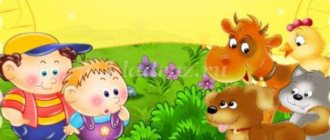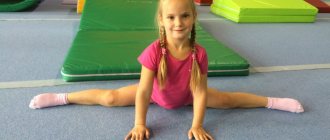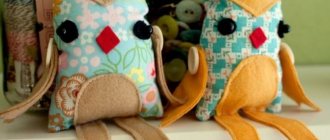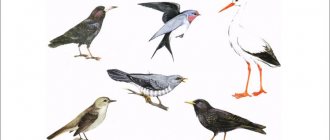Project “Cartoons by children’s hands”
Project
"Cartoons by children's hands"
Educator:
Simonova Tatyana Ivanovna
Children's age: 4-5 years
Project type:
creative-cognitive, group
.
Project implementation period: long-term (2019-2020 academic year)
Contents of the OO Federal State Educational Standards for Education: cognitive and creative development.
Relevance of the project. Formulation of the problem.
From the experience of teachers of preschool educational institutions, it is well known that respect for the child’s personality, acceptance of his goals, requests, interests, creation of conditions for self-determination and self-realization actively develops creativity. Protected from the violent interference of others, the life activity of children is manifested in unique forms of play, fairy tales, travel, adventure, and experimentation. Project activities make it possible to implement the principle of an optimal relationship between development determined by the actions of an adult and self-development determined by the child’s own activity
Creating a cartoon with preschool children is a modern type of project activity that is very attractive to children. By carrying out this type of project activity, we support any desire of children for creativity, we have the maximum possible influence on the formation in each of them of a free creative personality, a creative person, as the most expensive and sought-after “product” of education in modern society.
Analysis of psychological and pedagogical approaches to the process of organizing preschool education and training in the light of the implementation of the Federal State Educational Standard, observations of secondary group students during educational activities showed an insufficient level of development of children’s creativity and, in connection with this, the need to use new integrative technologies in the pedagogical process, focused on the child’s personality, on the development of his creative abilities. One of these technologies is the creation of cartoons with children.
Objective of the project:
updating the pedagogical process aimed at creating optimal conditions for the development of creative abilities of preschoolers through the creation of cartoons.
Project objectives:
To form in children a basic understanding of the mysteries of animation.
Introduce the professions: screenwriter, animator, camera operator, editor.
Enrich children's vocabulary with the concepts: “filming, script, frame.”
Develop cognitive, artistic and aesthetic interest in creating cartoons.
To develop proactive creativity and the child’s ability to solve any issues in a non-standard way.
Develop creative thinking and imagination.
In the process of research work on computer science “Cartoon with your own hands”, a 4th grade student was given the goal of learning more about the new genre of animation - computer animation, understanding how drawings “come to life” and trying to create her own cartoon.
More details about the work:
In a research paper on computer science, “Do-It-Yourself Cartoon,” the author describes the history of the appearance of animation, studies theoretical information about animation and animation, and studies the types of technologies that are used to create a cartoon.
In the proposed computer science project “Cartoon with your own hands,” the author sets tasks aimed at collecting information on the history of animation, studying different types of animation; familiarization with the main stages of creating cartoons; mastering some artistic techniques, modern technical means and computer programs necessary for creating animated films.
The results of this study can be useful as educational material, as well as for computer science lessons, classroom hours and leisure activities.
Table of contents
Introduction 1. From the history of animation 2. Technologies for creating animation 3. Working on a cartoon. 3.1 Analysis of the results of a survey about cartoons. 3.2 Creating a cartoon Conclusion References Appendices
Introduction
We live in an age of technological miracles. The computer occupies an important place in the life of a modern person.
One can argue for a long time about the benefits and harms of universal computerization, but one way or another, the computer has already become firmly entrenched in our lives - in the lives of the younger generation. Children watch films and cartoons, read books, write essays, communicate with friends, and play. All this using a computer!
My parents believe that this has a negative impact on the child. But on the other hand, you can’t do without computer literacy in the modern world! Then we decided to use the computer as a convenient tool for solving creative problems.
There is such a direction in Art - “computer graphics”. I was wondering, how are cartoons created in the genre of computer graphics?
My mother and my supervisor suggested that I get acquainted with the history of animation and find out what types of animation exist. I became interested and began to look for answers to these questions.
Object of study : animation as a special type of cinematic art.
Subject of research : the process of creating an animated film.
In my work I used the following methods :
- Studying literature.
- Watching videos.
- Study and analysis of the simplest animation technologies.
- Shooting your own cartoon.
- Analysis of the obtained result.
Goal : learn more about the new genre of animation - computer animation, understand how drawings “come to life” and try to create your own cartoon.
Tasks :
- collect information on the history of animation, study different types of animation;
- get acquainted with the main stages of creating cartoons;
- master some artistic techniques, modern technical means and computer programs necessary for creating animated films;
- summarize the results obtained.
Hypothesis : with accessible technical support, creating thematic animated films is accessible even to a child.
Research methods : studying literature on this topic, searching online resources, observation, comparison, practical work.
Relevance . Modern children can use a computer not only for games, but also as a tool for learning and solving creative problems. You can create cartoons, do web design, create your own music, digital painting and much more, depending on your personal interests. Thus, spend your free time profitably, diversify your leisure time and acquire a new hobby.
Stages of work on the project
- Collection and analysis of information (questioning of different age groups, studying literature, Internet resources)
- Generalization of the obtained data.
- Preparation for defense: studying software, creating a cartoon, etc.
- Defense (confirmation of the hypothesis).
Go to section: 2. History of animation
Making cartoons with your own hands
All children love cartoons
but not all children know that they can
make cartoons YOURSELF. »
Yes, yes, we will not talk about computer technology or complex programs. All we may need is plasticine, colored paper, toys or... ourselves! The technique is called stop motion.
First, decide which material will be easier and more interesting for your child to work with. Some people like to sculpt, others like to cut colored paper, others only respect cars or include their favorite pony in any game. In general, the process and the result should captivate the child.

So, what kind of cartoons are made with your own hands?
You can draw and cut out characters from paper and transfer them. Here is a wonderful paper cartoon, which was also created by children. There were a lot of children here, adults too, and a lot of time was spent on installation and processing, don’t be alarmed, but the principle of translation is clear.
Here is a subject cartoon based on the fairy tale about a mouse by our wonderful storyteller Maria Shkurina
And the inspiration for me was the cartoon by Maria Druzhinina. Just look at this coming out of the closet and turning people into things.
After you choose the material that will be easiest and most convenient for you to work with, you need to think through the script and scenery. You can make a cartoon based on a fictional plot, play on a famous fairy tale or poem, or repeat a series of your favorite cartoon in your own way. In any case, you should imagine what “scenes” will be there, what the characters will do and what decorations will be needed.
It is, of course, better to create the scenery and characters together with the children. In general, the more they take part in the process, the better. For them, this is a great experience of creating magic with their own hands.
Now let's move on to the technical aspects.
I collected cartoons in two programs:
(this program is suitable not only for assembling cartoons, but also for processing a video, let’s say you’re filming on your phone, suddenly you decide to make a cut about children, trim the beginning/end of the video, flip it, add music or something else) ... In In general, in any case, I recommend trying it. There you can immediately read what the program can do (below the download button there are “more details” buttons under the sections.
Everything is quite clear and simple, at the intuitive level of the Office.
1.2. Pinnacle Studio 18, I downloaded it from torrents, so I can’t give you a link, it’s paid, it’s more complicated than Film Studio, but this is, so to speak, a guarantee for the future, I really want to thoroughly understand such a program. If it suddenly happens that you have it, then write, I’ll help you navigate.
Oh, this stopped me for a long time; I looked at cartoons with children’s voice acting and was envious. I thought I needed to come up with something big. Until I realized it - PHONE.
At maximum quality, it records sound in wav format, which, if necessary, can be converted to any format (there are free online services, if necessary), but in general, then just transfer all the recordings from your phone to your computer and paste them into the cartoon in the program (it’s sooooo easy ).
The only thing is that when recording, you should not write down everything in one fell swoop, but divide the task for the child into short segments, which will then be easier to manage, this is one, and secondly, it is easier for the child to write down several passages of a small text than all at once. Let's say a poem about penguins is divided into 5 (.) segments. Those. They repeated the first quatrain - they wrote it down, they repeated the second - they started to write it down, I stumbled, nothing, again, but every piece was more or less clean, if only Nikita and the dogs had not made noise :)))
Now the children play around with the recorder themselves, turn it on, record themselves or listen, I just looked - 26 recordings)) I need to listen, in case something from what they recorded is useful, for example, for the background to their own photo. :)))
A tripod will be very useful. Perhaps it’s not you, but your friends/acquaintances, ask for it for a couple of days. I don’t just attach the camera to my tripod, but wrap it tightly with electrical tape so as not to accidentally move it. (Photo of the filming process of the cartoon about the Little Sorceress.")
The camera can be firmly mounted on the edge of a table, for example, or a chair. Closer to the point, I might try to demonstrate (buy masking tape). The only thing is that then you need to strictly decide on the choice of “site”. where the plot will take place... If the cartoon will have a paper crossbar, then it would be good to choose a table so that it stands against the wall, so that the background sheet can be fixed opposite on the wall...
This is how, for example, Anna Usova got out of the situation. She made a hole in the box for a camera, and filmed her first paper cartoon on her phone.
A lot of. The bigger, the better. The fact is that the camera may still lose focus (if you take photographs in automatic mode). And then the frames will “jump” or appear blurry when viewed on a computer.
In general, the standard (I chose for myself) calculation: 6 frames per second. For example, for a video about the Little Sorceress it took more than 300 photos, but the cartoon turned out to be less than a minute :))) In total, about 450 photos were taken for the cartoon, but not all of them were suitable.
For the cartoon about charging penguins, much fewer photographs were taken, but there were also fewer frames per second, 4 frames per second, if I’m not mistaken. the fact is that it is very difficult for small plasticine characters to change and come up with many, many movements :)) There was another difficulty here: the sound sequence is not music, but a poem. which my daughter told into a tape recorder. Therefore, first I looked at how many seconds each section of the poem had, then I scattered the photographs into folders and calculated the required number for the timing. Now I will be smarter and before shooting I will record a sound track, calculate it and estimate the number of photos and will take them with a reserve :)))))))
In conclusion, I want to say that homemade cartoons are a miracle for children of any age. Even many, many photographs, even if they are not processed in a program, but simply clicked left and right, bring children so much joy. Well, if they participated in the process, they know “where the legs come from” and what it came from, and then they see the result - this is a big, no, Big small step of a Man who knows how to make his dreams and ideas come true.
Not only am I interested in homemade cartoons, but I also try very hard to inspire others to do this :))) Now I’m actively supplying my daughter’s theater teacher with links to children’s cartoons, we’re discussing options with her, and maybe next year we’ll make a couple of cartoons with the kids :))) It will be very interesting!
I have already talked about homemade cartoons and this really inspired some mothers to “feat”! Just look!
Write your questions in the comments to this article, I will be happy to answer and help. The theme is very cool.
Source





